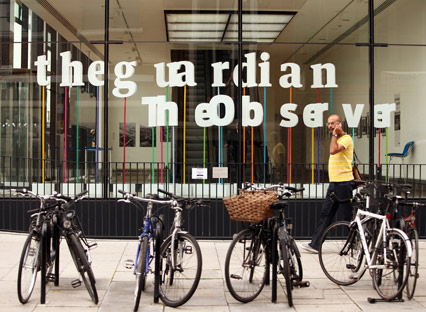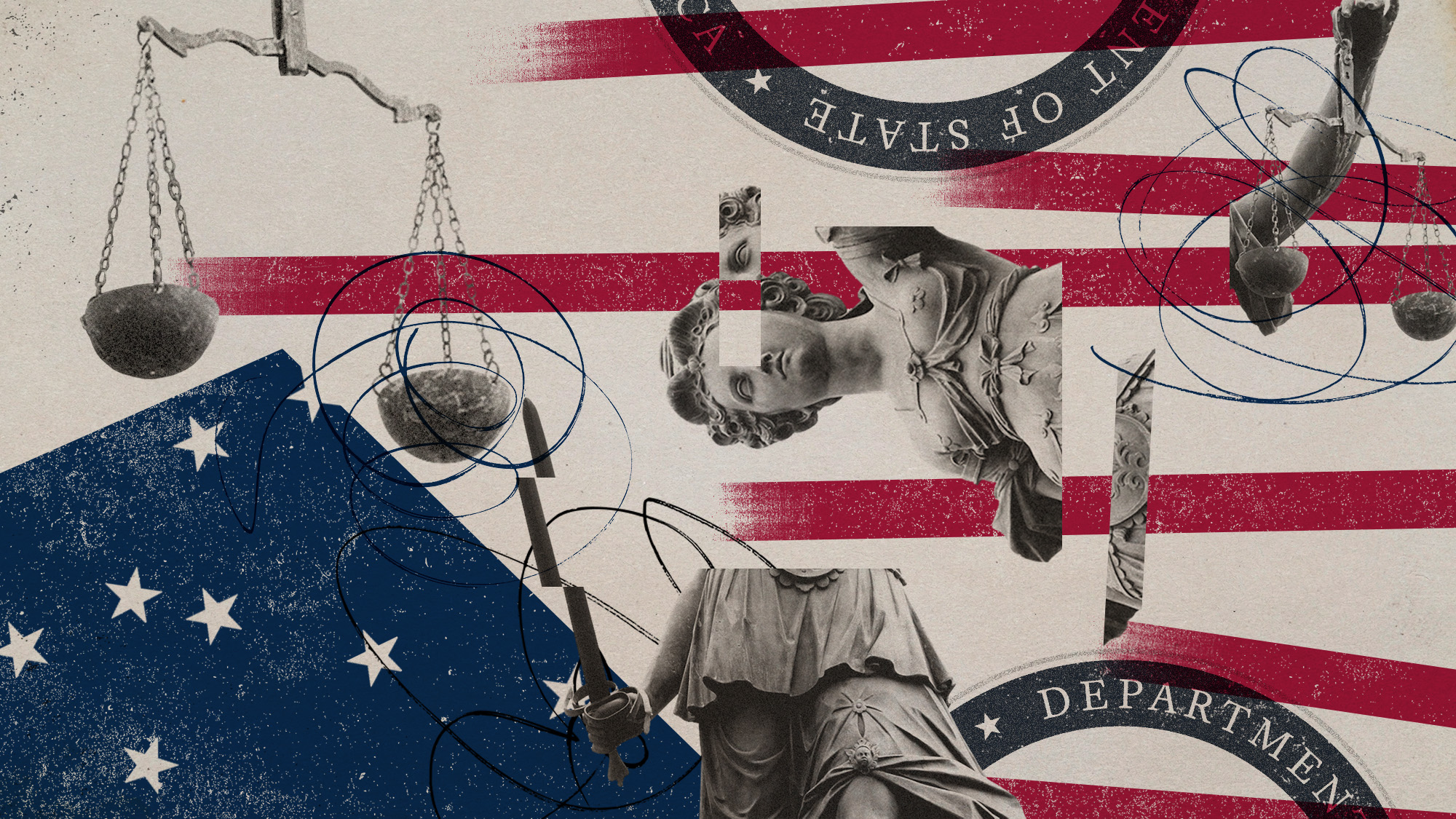Legal battle looms over Met attack on Guardian
Police action is an abuse of the Official Secrets Act and the Human Rights Act, say editors and lawyers

A free daily email with the biggest news stories of the day – and the best features from TheWeek.com
You are now subscribed
Your newsletter sign-up was successful
WHAT'S HAPPENED?
LAWYERS and journalists have rushed to the defence of Guardian editor Alan Rusbridger following the revelation that Scotland Yard plans to use the 1989 Official Secrets Act, designed to prevent espionage, to force the paper to reveal its sources in its recent coverage of the phone-hacking scandal.
In particular, it appears the police want to know who exactly told the Guardian that the News of the World had hacked into the phone messages of the murdered teenager Milly Dowler.
The Week
Escape your echo chamber. Get the facts behind the news, plus analysis from multiple perspectives.

Sign up for The Week's Free Newsletters
From our morning news briefing to a weekly Good News Newsletter, get the best of The Week delivered directly to your inbox.
From our morning news briefing to a weekly Good News Newsletter, get the best of The Week delivered directly to your inbox.
WHAT DOES IT MEAN?
Investigative reporters and their editors work on the assumption that if they are breaking stories in the public interest, their sources must be allowed to remain anonymous. If journalists are forced to betray their sources, the flow of information will inevitably dry up.
In breaking the Milly Dowler story, the Guardian raised the game in its long-running coverage of the News of the World hacking scandal. A litany of celebrities had been revealed to have had their phones hacked, but the general public were not overly sympathetic.
However, the news that the NotW had hacked into the messages of a missing girl, even clearing out old messages to make room for new ones, came as a real shock to the public and to parliament. It was this revelation, published exclusively by the Guardian on July 4, that led Rupert Murdoch to take the extraordinary decision to close the newspaper down.
A free daily email with the biggest news stories of the day – and the best features from TheWeek.com
In media circles, the Guardian's Milly Dowler expose is acknowledged as a great scoop and one which had real repercussions for the public good.
The police claim they do not wish "to prevent whistle blowing or investigative journalism that is in the public interest". In a statement issued yesterday, they said: "We pay tribute to the Guardian's unwavering determination to expose the hacking scandal and their challenge around the initial police response."
But they still want to know who was leaking information to the Guardian that enabled the paper to break its phone-hacking stories. And they are prepared to use the Official Secrets Act to do so.
According to the Guardian's sister Sunday paper, the Observer, lawyers for the Met will apply this Friday for an order under the 1989 Act to require the paper to give up its sources.
WHAT NEXT?
Alan Rusbridger says the Met's move is "vindictive and disproportionate" and that the Guardian will resist it "to the utmost". If there is to be a legal battle, we can expect to see some of the legal world's biggest guns deployed.
Geoffrey Robertson QC has already described the Met's move as "reaching for the blunderbuss". He makes the point that the Guardian's coverage "exposed not only the hackers but also the incompetence of the police, and it is no doubt for that reason that Scotland Yard is overzealous in its latest attempt to discover their sources."
Like Robertson, Harold Evans, the respected former editor of the Sunday Times in an era when that paper was renowned for its investigative reporting, says the Met's move is a "cavalier abuse of an act intended to protect national security, not to cover up negligence and corruption, least of all to justify an assault on the very newspaper that exposed the original crime while the police, politicians and the press walked by."
Leading human rights lawyer John Cooper also believes it's an abuse of the 1989 Act. "Fundamentally the act was designed to prevent espionage," he told the Observer. "In extreme cases it can be used to prevent police officers tipping off criminals about police investigations or from selling their stories. In this instance none of this is suggested, and many believe what was done was in the public interest."
Both Cooper and Robertson believe the Met's action is also likely to contravene article 10 of the European Human Rights Act, which protects freedom of speech.
So, this could go beyond the London courts to Strasbourg if the attorney-general doesn't step in first and put a stop to it, as Harold Evans believes he must.
Otherwise, the Guardian might want to call upon the newest recruit to the ranks of British press barons – Alexander Lebedev, owner of the Independent, who, as we report elsewhere on The First Post today, is no slouch with his fists.
Nigel Horne is Comment Editor of The Week.co.uk. He was formerly Editor of the website until September 2013. He previously held executive roles at The Daily Telegraph and The Sunday Times.
-
 Munich Security Conference: a showdown between Europe and Trump?
Munich Security Conference: a showdown between Europe and Trump?Today’s Big Question Report suggests European leaders believe they can no longer rely on the US for military support – but decoupling is easier said than done
-
 The Week Unwrapped: Have televised confessions quelled protests in Iran?
The Week Unwrapped: Have televised confessions quelled protests in Iran?Podcast Plus, why has Elon Musk turned from Mars to the Moon? And will the BBC prove to be a puzzles champ?
-
 The week’s best photos
The week’s best photosIn Pictures An Andean god, a rogue squirrel, and more
-
 How corrupt is the UK?
How corrupt is the UK?The Explainer Decline in standards ‘risks becoming a defining feature of our political culture’ as Britain falls to lowest ever score on global index
-
 The high street: Britain’s next political battleground?
The high street: Britain’s next political battleground?In the Spotlight Mass closure of shops and influx of organised crime are fuelling voter anger, and offer an opening for Reform UK
-
 Nicolás Maduro: from bus driver to Venezuela’s president
Nicolás Maduro: from bus driver to Venezuela’s presidentIn the Spotlight Shock capture by US special forces comes after Maduro’s 12-year rule proved that ‘underestimating him was a mistake’
-
 Is a Reform-Tory pact becoming more likely?
Is a Reform-Tory pact becoming more likely?Today’s Big Question Nigel Farage’s party is ahead in the polls but still falls well short of a Commons majority, while Conservatives are still losing MPs to Reform
-
 Taking the low road: why the SNP is still standing strong
Taking the low road: why the SNP is still standing strongTalking Point Party is on track for a fifth consecutive victory in May’s Holyrood election, despite controversies and plummeting support
-
 Why has the State Department scaled down its stance on human rights?
Why has the State Department scaled down its stance on human rights?Today's Big Question The Trump administration has curtailed previous criticisms of human rights violations
-
 What difference will the 'historic' UK-Germany treaty make?
What difference will the 'historic' UK-Germany treaty make?Today's Big Question Europe's two biggest economies sign first treaty since WWII, underscoring 'triangle alliance' with France amid growing Russian threat and US distance
-
 Is the G7 still relevant?
Is the G7 still relevant?Talking Point Donald Trump's early departure cast a shadow over this week's meeting of the world's major democracies